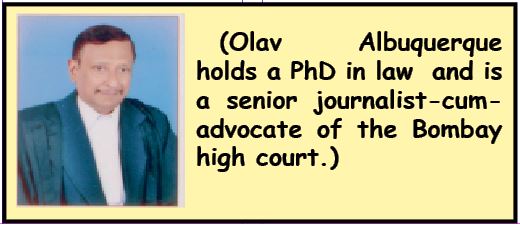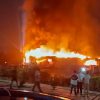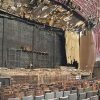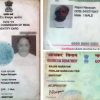Goa is abuzz with excitement as vintage bike and car owners, users, collectors and fans are decking […]
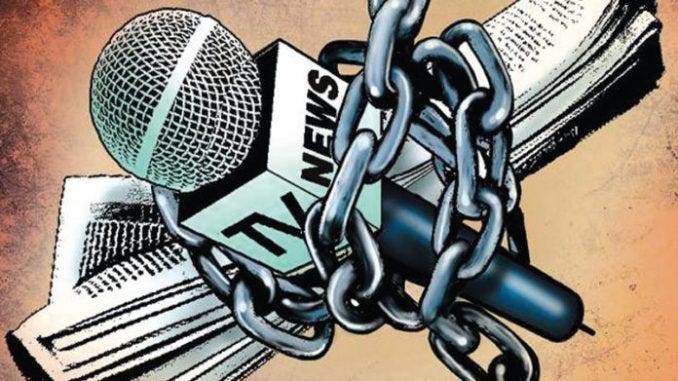
QUESTIONS OFFEND LAW-MAKERS! By Dr Olav Albuquerque
Aug 31- Sep 06 2024, LAW August 30, 2024DO journalists have a right to ask questions? Of course they do, which is why the right to question is synonymous with freedom of the press although Article 19 (1) (a) neither mentions the word “press” nor the word “question.” For that matter, the right to protest against the bestial rape and murder of the Kolkata doctor also forms an integral part of the right to freedom of speech and expression.
This is why the allegation that BJP MP Narayan Rane snatched a boom microphone from a reporter and warned him of dire consequences if he asked questions. The MP visited Sindhudurg to review the site where the statue of the Maratha Emperor Chhatrapati Shivaji had reportedly collapsed. This resulted in the Mumbai Press Club issuing a note condemning the incident.
Till the 1970s, reporters published what the government told them to publish without any qualms of conscience because those were the decades when digital media had yet to make its entry, while acquiring a telephone was more difficult than buying a jet plane. All that has changed with chatgpt and artificial intelligence while television news instantaneously transmits demands, for West Bengal chief minister Mamata Banerjee to quit over the rape and murder of the innocent doctor.
FREEDOM OF PRESS
JOURNALISTS’ right to question and their right to keep anonymous their sources of information is synonymous with their right to freedom of the press, which Dr Babasaheb Ambedkar, in his wisdom chose to drop from Article 19 (1) (a). Despite his erudition and intelligence, Ambedkar made a big mistake by omitting the word “press” from Article 19 (1) (a), which is why India has plummeted to the 150th spot out of 180 countries in the World Freedom of Press Index.
This could be a reason why the UP government has formulated a social media policy to jail those who post “anti-national” or “objectionable” content can result in the offender being jailed for life with a minimum jail term of three years. The woman reporter who broke the news of the Badlapur rape incident which went viral after people learnt that minor girls were molested in a school, the reporter was allegedly threatened and abused by a politician who has links with the ruling Eknath Shinde faction of the ruling party. This politician allegedly asked her if she had been raped and this is why she broke this particular rape of two girls news item.
BECOMING NON-EXISTENT
WE must conclude that the right to free speech which forms a part of the basic structure of the Constitution, along with the independence of the judiciary and secularism which is slowly becoming non-existent in India, is a chimerical concept. We imagine we enjoy a right which is a beautiful rainbow in the sky. Nice to look at but impossible to hold.
The right to protest is also in Article 19 (1) (a) which protects free speech while Article 19 (1) (g) protects the right to assemble peacefully and without weapons. The Supreme Court laid this down as far back as 1950 in what was known as AK Gopalan versus State of Madras case. But just as free speech is subject to reasonable restrictions, so too the right to protest is subject to what protesters against the Mamata Banerjee government will declare are unreasonable curbs.
The US Supreme Court has also declared that the right to dissent or protest is a fundamental right but as far back as 1939, their judiciary declared that the government can impose restrictions on the time and place where these protests can be held. In India, our Supreme Court has dealt with the legality of bandh, recognizing that while workers have the right to strike, it must be conducted within the bounds of law and should not disrupt essential services or violate other fundamental rights.
This principle was replaced by the opinion of the Supreme Court in 2003 which declared that the right of public sector employees who work in essential services can be restricted. This makes sense in view of the fact that the entire country cannot be held to ransom by disgruntled public sector employees who work in banks, the police or the electricity and water departments, vital services which if paralysed by these workers, will result in the entire country coming to a standstill.
So we return to the fundamental question of do journalists have a right to question the government? If the Opposition has a right to ask starred and un-starred questions in Parliament, journalists have a right to ask inconvenient questions to an inconvenienced government outside Parliament. Former chief ministers like Narayan Rane whose threshold of tolerance is very low, must learn to put up with such questions or ignore them if they cannot answer these questions. But to snatch a microphone from the reporter and threaten him is not acceptable.
The vandalism and mob violence taking place in Kolkata after the gruesome rape and murder of the Kolkata doctor can be construed as the right of the people to question why the Mamata Banerjee government is unable to maintain law and order. But violence is unacceptable, which is why the police were justified in using water cannons and tear gas to disperse the rioting mob.
ARROGANCE OF POWER
WHETHER it is Mamata Banerjee in West Bengal or Yogi Adityanath in UP, the axiom is the same. Those who wield power dislike being questioned because they are exposed before the people whom they profess to represent. Nations have eccentricities, peculiarities and hallucinations which find expression in repressive laws, obsolete customs , ceremonies, morals and religion.
These are legalized in the name of religion to act as an opiate for the masses. The average man blindly believes what he imbibes from his environment controlled by the government. His religion and country infuse him with hatred for different beliefs and religions. His mind is deformed to believe what the government wants him to believe so that those who dissent are labeled anti-nationals and jailed.
